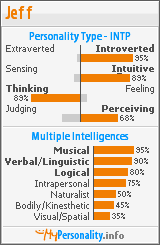Kelly McParland: Michael Ignatieff wants to give me $1,000 I don’t need
Mar 30, 2011 – 11:47 AM ET | Last Updated: Mar 30, 2011 3:51 PM ET

Phil Carpenter/ THE GAZETTE
Don't bet on it
As the parent of an offspring in university, I could have used an extra $1,000 a year towards the tuition.
I have a number of friends and relatives in a similar position. University is expensive, so why pay full freight if you don’t have to?
Except, like me, most of these people are lucky enough that they can afford it. Maybe tuition hurts, but they can scrape it together and not go hungry. Some have two or three kids racking up post-secondary bills at the same time.
They’d all be happy to get the free $1,000 per year, per student, promised by the Liberals’ biggest election promise to date, the “Canadian Learning Passport,” which promises $1,ooo a year for four years for any kid who wants to go to college or university. Students from low-income families would get an extra $500 a year.
Nice. But look: According to Statistics Canada, 75% of tax-paying Canadians make less than $50,000 a year. Only 5% make over $100,000. That means much of the $1 billion annual cost of Mr. Ignatieff’s promise will come from Canadians who can least afford university tuition, and go to those who can.
How does that make sense?
Statistics Canada says students from high-income families are far more likely to enrol in university than those from low-income groups. The Liberals say the “passport” will remedy that disparity by making tuition more affordable. But will it?
Studies show income level is one element in whether or not students go on the university. But another key factor is parental expectations. Kids in high-income families tend to be pressed harder by their parents, who have higher expectations. An extra $1,000 won’t change that much.
Nor will it do much to offset the cost of school. In addition to tuition, there are books and plenty of incidental costs to university, which can quickly add up to $10,000 or more, even if a student is able to live at home. An extra $1,000 might help, but $9,000 is still a pretty big cheque to write for someone earning less than $50,000. And once the provinces know every student is getting a free $1,000 from Ottawa, how long do you think it will take for them to figure out a way to increase tuition costs accordingly?
So the odds are that Mr. Ignatieff’s well-meant plan will result in many middle- to high-income Canadian families being subsidized by the 18 million workers to whom university is a much more distant dream.
It may sound like a nice idea, but it would prove to be a cruel joke on a lot of people who can’t afford to send their own children to university, but would have to contribute to subsidies for those who don’t need the money. And since university graduates tend to have higher incomes than others, low-income Canadians would find themselves financing a system that perpetuates the income gap they’re trying to overcome. The rich would get help staying richer, and the bills would go to the lowest incomes.
National Post

